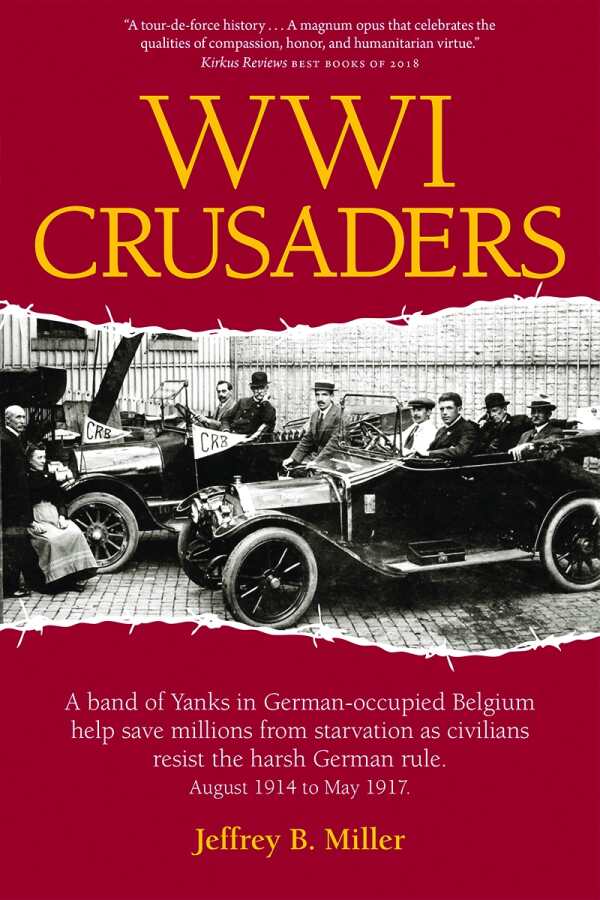WWI Crusaders
- 2018 INDIES Winner
- Bronze, War & Military (Adult Nonfiction)
WWI Crusaders is an important historical account of an earnest effort to save a people from wartime destruction.
Jeffrey B. Miller’s historical work WWI Crusaders reveals the detailed story behind the world’s largest famine relief effort, which took place during World War I.
In August 1914, World War I broke out when Germany invaded neutral Belgium, forcing Great Britain to deliver on their promise to come to the Belgians’ aid should the Germans attack. Against this backdrop, the story of how the American-led Commission for Relief in Belgium and the Belgian Comité National organized the—to this day—largest famine relief effort is told.
From the outbreak of the war to when the United States entered the conflict in May of 1917, the CRB and the CN worked together to organize food transportation to a starving Belgium under German occupation. They worked outside of any government system, instead harnessing the bravery and idealism of ordinary Americans, Brits, and Belgians alike.
The book is as impressive a feat as the topic it chronicles. The account of the CRB, the CN, and the Belgian famine relief is detailed and thoroughly researched. The photographs included were well-selected and add extra dimension to what is on the page. Short biographies at the beginning of the book help in keeping track of the many individuals involved.
The book approaches its source material critically and provides poignant analytical insights, though it displays problematic bias in favor of those who worked with the famine relief. The most controversial character traits of Herbert Hoover, founder of the CRB, are glossed over, as are the moral flaws of Émile Francqui, a Belgian capitalist who led the CN but also the Congo Free State under Leopold II.
The book is elegantly written with a firm hold on its historical background. The narrative is dense, detailed, and tightly knit. At times, though, details overwhelm the story; German cruelty toward Belgians specifically is never explained, nor is how the German occupation of Belgium fit into the overall war effort, specifically in relation to the Eastern Front. Instead, the book focuses on interpersonal interactions—several without an obvious connection to the overarching narrative. Each chapter ends with a cliffhanger, some of which are immediately resolved, though others are left hanging.
WWI Crusaders is an important historical account of an earnest effort to save a people from wartime destruction.
Reviewed by
Erika Harlitz Kern
Disclosure: This article is not an endorsement, but a review. The publisher of this book provided free copies of the book and paid a small fee to have their book reviewed by a professional reviewer. Foreword Reviews and Clarion Reviews make no guarantee that the publisher will receive a positive review. Foreword Magazine, Inc. is disclosing this in accordance with the Federal Trade Commission’s 16 CFR, Part 255.

